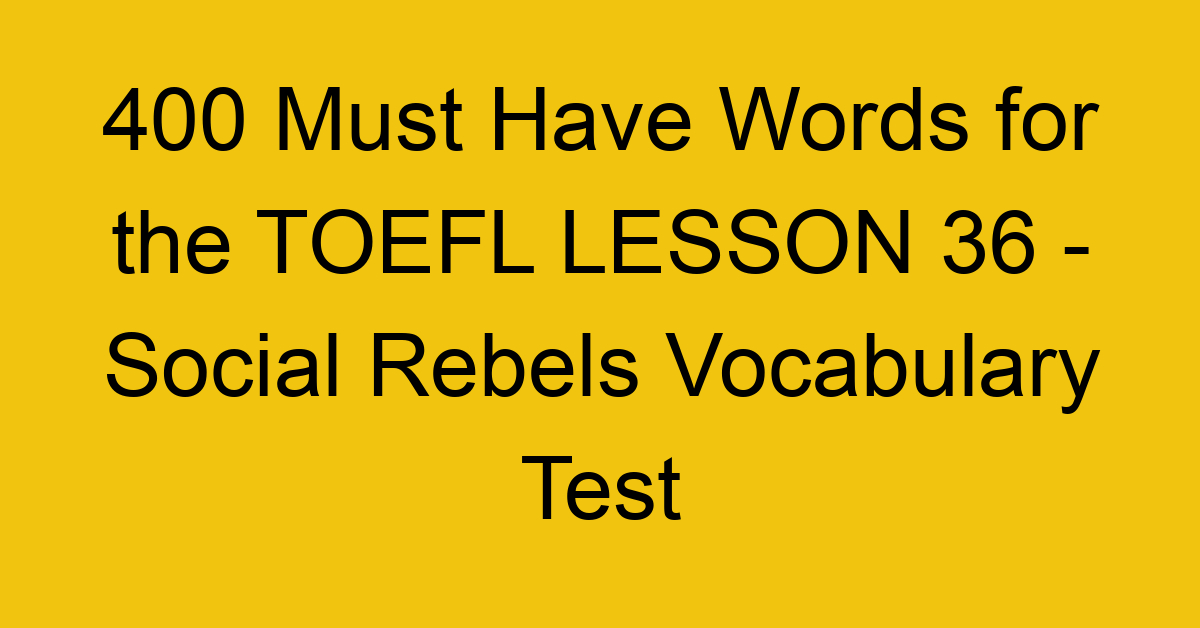400 Must Have Words for the TOEFL LESSON 35 - Negative Emotions Vocabulary Test
Word List
antipathy [ænˈtɪpəθɪ] n.
A strong, long-lasting negative feeling
→ My antipathy toward telemarketers is so strong that I am often rude to them.
Usage tips Antipathy is often followed by a toward phrase.
arrogantly [ˈærəgəntlɪ] adv.
In a way that shows a high opinion of oneself and a low opinion of others
→ Jenny told us about her party only one day in advance, arrogantly thinking we had nothing else to do.
Parts of speech arrogance n., arrogant adj.
berate [bɪˈreɪt] v.
To say insulting and disrespectful things
→ The teacher lost his job because he cruelly berated students who made mistakes.
Usage tips You can only berate someone directly—only when he or she can hear you.
contemptuous [kənˈtɛmptʃuəs] n.
Having no respect
→ Most scientists are contemptuous of reports that aliens from outer space have landed on the Earth.
Usage tips A very common structure is be contemptuous of.
Parts of speech contempt n., contemptible adj., contemptuously adv.
despise [dɪsˈpaɪz] v.
Hate very much
→ Tom grew to despise his greedy and unfriendly boss.
humiliation [hjuːmɪlɪˈeɪʃən] n.
An event that causes someone to feel that she or he has lost the respect of others
→ Losing the chess tournament was a great humiliation for Marie, and she never played chess again.
Parts of speech humiliate v.
obnoxious [əbˈnɒkʃəs] adj.
Bothersome; doing small things that others don’t like
→ My obnoxious neighbor keeps talking to me while I’m trying to read in my backyard.
Parts of speech obnoxiously adv.
shame [ʃeɪm] n.
Dishonor because one has done something wrong
→ Feeling deep shame because of their son’s crimes, the Ford family moved to a different town.
Usage tips Shame is often followed by an of or about phrase.
Parts of speech shame v., shameful adj., ashamed adj., shamefully adv.
stigmatize [ˈstɪgmətaɪz] v.
To mark with a visible feature that makes other people think, perhaps incorrectly, that someone or something is wrong
→ Cadbury’s beard and tattoos stigmatized him as a bad match for Wall Street,so he couldn’t find work as a financial analyst.
Parts of speech stigma n.
vitriolic [ˌvɪtrɪˈɒlɪk] adj.
Showing an extreme, hateful anger
→ The mayor’s vitriolic attacks against the city council only made him sound unreasonable.
Usage tips The origin of vitriolic is “vitriol,”a strong chemical that could cause painful burns.






